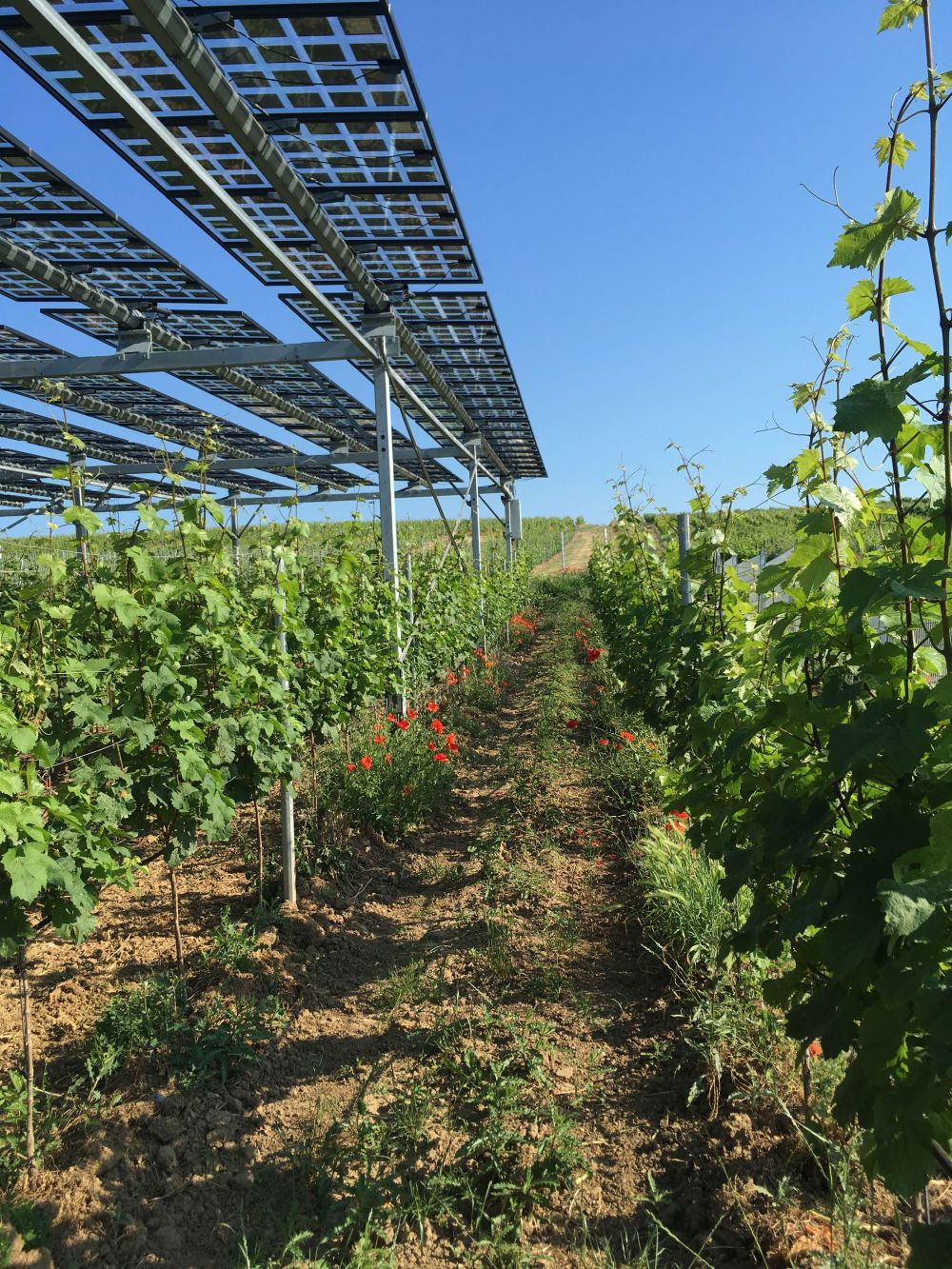| Duration: | 01/2023 - 12/2025 |
| Contracting Authority/ Sponsors: | Federal Ministry of Education and Research (BMBF) |
| Project Partners: | schlaich bergermann partner - sbp sonne GmbH, Hochschule Geisenheim University |
| Project Focus: |
VitiCULT-PVmobil – An Integrated Solution for Climate Resilience, Energy Transition and Crop Protection for Sustainable Viticultural Landscapes
Viticulture in Germany is particularly affected by the consequences of climate change: increasing heat and drought periods as well as other extreme weather events. Young vines are particularly in need of protection, as they do not yet have the resilience of older vines. Here, agrivoltaics could be used to increase resilience through its shading effect, among other things. In addition, in perennial crops, shade tolerance in the first years can differ greatly from that in subsequent years. For these reasons, the project partners SBP Sonne, Fraunhofer ISE and Geisenheim University of Applied Sciences have focused on developing a mobile agrivoltaic system specifically for use with young vines in the »VitiCult-Mobil« project. The project is financially supported by the German Federal Ministry of Education and Research. The goal is a flexible system that adapts to the needs of the winegrowers. The effects on the vines will be studied both technically and economically to ensure the practicality of the system.
The application of agrivoltaics in viticulture currently still shows large research gaps. However, the potential for implementation is promising due to the high added value of land in the face of increasing climate change-related problems. This is because viticulture in Germany is facing the problem of increasing drought, premature harvesting phases and the associated reduction in wine quality. This is because climate change is accelerating the phenological development of the vines. This means that many grape varieties, such as Riesling, are now being harvested up to a month earlier than in the middle of the last century. This not only affects wine quality, but also the workload of the winegrowers. When grapes are harvested in mid-September, it is much warmer than in mid to late October. Pest infections are therefore much faster at higher temperatures, which is why winegrowers are currently having to upgrade their harvesting equipment. The earlier budbreak increases the risk of late frost. An agrivoltaic system could help reduce infections and delay ripening. This would be especially important for many white wine grape varieties. Another challenge with respect to climate change, are the establishment of young vine stocks after new planting. On less deep sites (slopes), it takes significantly longer in dry, hot summers for young vines to reach initial yield. Any loss of yield is economically problematic for winegrowing enterprises. A mobile »VitiCULT-PVmobil« system could help by reducing evapotranspiration, conserving soil water and delaying ripening through shading. This needs to be investigated. As part of the VitiCULT-PVmobil project, such a pilot plant will be designed and operated on experimental vineyards at Geisenheim University. Over a period of two years, phenology, biomass production, vine health as well as yield and quality parameters of agrivoltaic wines will be recorded compared to conventional wines at the same location.


